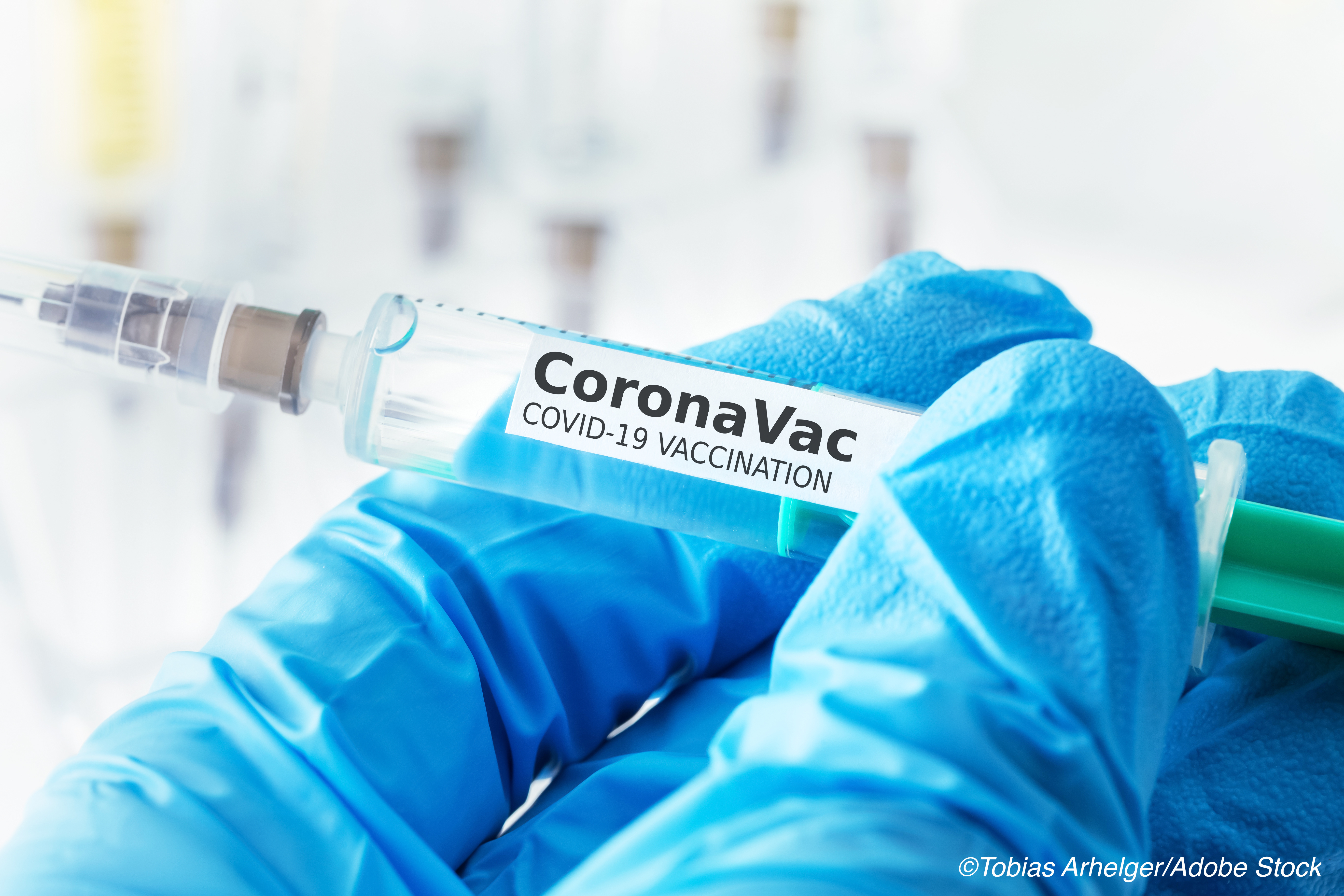Real-world data involving more than 10 million people in Chile show the Chinese CoronaVac vaccine to be highly effective for preventing Covid-19 hospitalizations and deaths.
Full (two-dose) vaccination was close to 66% effective in preventing the disease, 90% effective in preventing ICU admission, and 86% effective for preventing Covid-19-related death in the prospective study, which included Chile residents age 16-years and older who received the CoronaVac vaccine during a countrywide mass immunization campaign beginning early last February.
The inactivated SARS-CoV-2 vaccine was also found to be roughly 87% effective for preventing hospitalizations, researchers reported on Wednesday in The New England Journal of Medicine.
Phase III data from a clinical trial of the CoronaVac vaccine conducted in Turkey, published Thursday in The Lancet, also showed the vaccine to be highly effective for preventing severe disease and death.
Unlike the mRNA vaccine, the inactivated vaccine relies on the decades-old technology of growing pandemic viruses in living cells. While most vaccine makers outside China ignored the technology in the race to find effective Covid-19 vaccines, companies in China embraced the established technology.
Two inactivated vaccines—CoronaVac (Sinovac Life Sciences, Beijing, China) and BBIBP-CorV (Sinopharm, Beijing)—have received World Health Organization emergency use authorization status.
While inactivated vaccines are more difficult to produce than most relying on newer technologies, they have several advantages for use in global, large-scale roll outs. They require only normal refrigeration, and they have a long shelf-life.
The vaccines have been used in China to vaccinate about 20 million people each day, and they represent around 60% of all Covid-19 vaccine doses given around the world.
The prospective national cohort study from Chile was conducted form early February through the first of May 2021, with data on approximately 10.2 million people used for the analysis. Laboratory confirmation of infection involved RT-PCR in 98% of cases.
The analysis revealed:
- Among partially immunized people (14 to 28 days after receipt of the first dose), vaccine effectiveness for the prevention of Covid-19 was 15.5% (95% CI, 14.2-16.8), for the prevention of hospitalization was 37.4% (95% CI, 34.9-39.9), or the prevention of admission to the ICU was 44.7% (95% CI, 40.8- 48.3), and for the prevention of Covid-19–related death was 45.7% (95% CI, 40.9 to 50.2).
- Among fully immunized people, the estimated adjusted vaccine effectiveness for the prevention of Covid-19 was 65.9% (95% CI, 65.2-66.6), for the prevention of hospitalization was 87.5% (95% CI, 86.7-88.2), for the prevention of ICU admission was 90.3% (95% CI, 89.1- 91.4), and for the prevention of Covid-19–related death was 86.3% (95% CI, 84.5- 87.9).
- Adjusted vaccine efficacy in the subgroup of fully immunized persons 60 years of age or older for the prevention of Covid-19 was 66.6% (95% CI, 65.4-67.8), for the prevention of hospitalization was 85.3% (95% CI, 84.3-86.3), for the prevention of ICU admission was 89.2% (95% CI, 87.6-90.6), and for the prevention of Covid-19–related death was 86.5% (95% CI, 84.6-88.1).
The phase III study from Turkey included participants between the ages of 18 and 59 years of age with no history of Covid-19 and negative PCR and antibody results for SARS-CoV-2.
A total of 10,218 people were randomly assigned to receive two doses of the CoronaVac vaccine or placebo (2:1 ratio) 14 days apart.
During a median follow-up period of 43 days (IQR 36–48), 9 cases of PCR-confirmed symptomatic Covid-19 were reported in the vaccine group and 32 cases were reported in the placebo group (incidence rate, 31.7 cases per 1,000 person years versus 192.3 cases per 1,000 person years) 14 days or more after the second dose. Vaccine efficacy was 83.5% (95% CI ,65.4–92·1; P<0·0001).
All 6 patients hospitalized with Covid-19 during the study were in the placebo group.
The vaccine was well tolerated, and immunogenicity analyses conducted in a subset of patients (n=1,413) 14 days following full vaccination showed evidence of IgG and IgM antibodies specific for the receptor-binding domain of the SARS-CoV-2 spike protein in 90% of the CoronaVac recipients and just 4% of placebo recipients.
No viral sequencing data were presented in the study, and the vaccine’s efficacy against emerging Covid-19 variants remains largely unknown.
“The world needs every possible dose of any safe and effective vaccine against SARS-CoV-2,” wrote researcher Mine Durusu Tanriover, MD, of Hacettepe University, Ankara, Turkey, and colleagues.
“Although novel genetic vaccine production platforms hold great potential for the rapid and adaptable mass production of vaccines, traditional platforms have a long experience of producing safe and tolerable vaccines with good immunogenicity. The results of this interim analysis have shown that CoronaVac fulfils the critical or minimal requirement of vaccines for the indication of pandemic use, hitting above the minimum efficacy of 50% as specified by the WHO target product profile as an option for mass vaccination.”
In commentary published with the Lancet study, Maheshi Ramasamy and Lucy Jessop of the Oxford Vaccine Group at the University of Oxford, UK, wrote that the phase III findings suggest that “CoronaVac is another useful tool in the global fight against Covid-19, although more data are needed on its efficacy against emerging SARS-CoV-2 variants and on its duration of protection across different age groups and geographical settings and in the presence of comorbidities.”
- Real-world data involving more than 10 million people in Chile show the Chinese CoronaVac vaccine to be highly effective for preventing Covid-19 hospitalizations and deaths.
- Phase III data from a clinical trial of the CoronaVac vaccine conducted in Turkey also showed the vaccine to be highly effective for preventing severe disease and death.
Salynn Boyles, Contributing Writer, BreakingMED™
The prospective national cohort study from Chile was funded by AgenciaNacional de Investigacion y Desarrollo, Millennium Science Initiative Program, and others.
The phase 3 study form Turkey was funded by the Turkish Health Institutes Association. The researchers and the commentary writers’ declared no competing interests related to this study.
Cat ID: 190
Topic ID: 79,190,730,933,190,926,192,927,151,928,925,934



Create Post
Twitter/X Preview
Logout